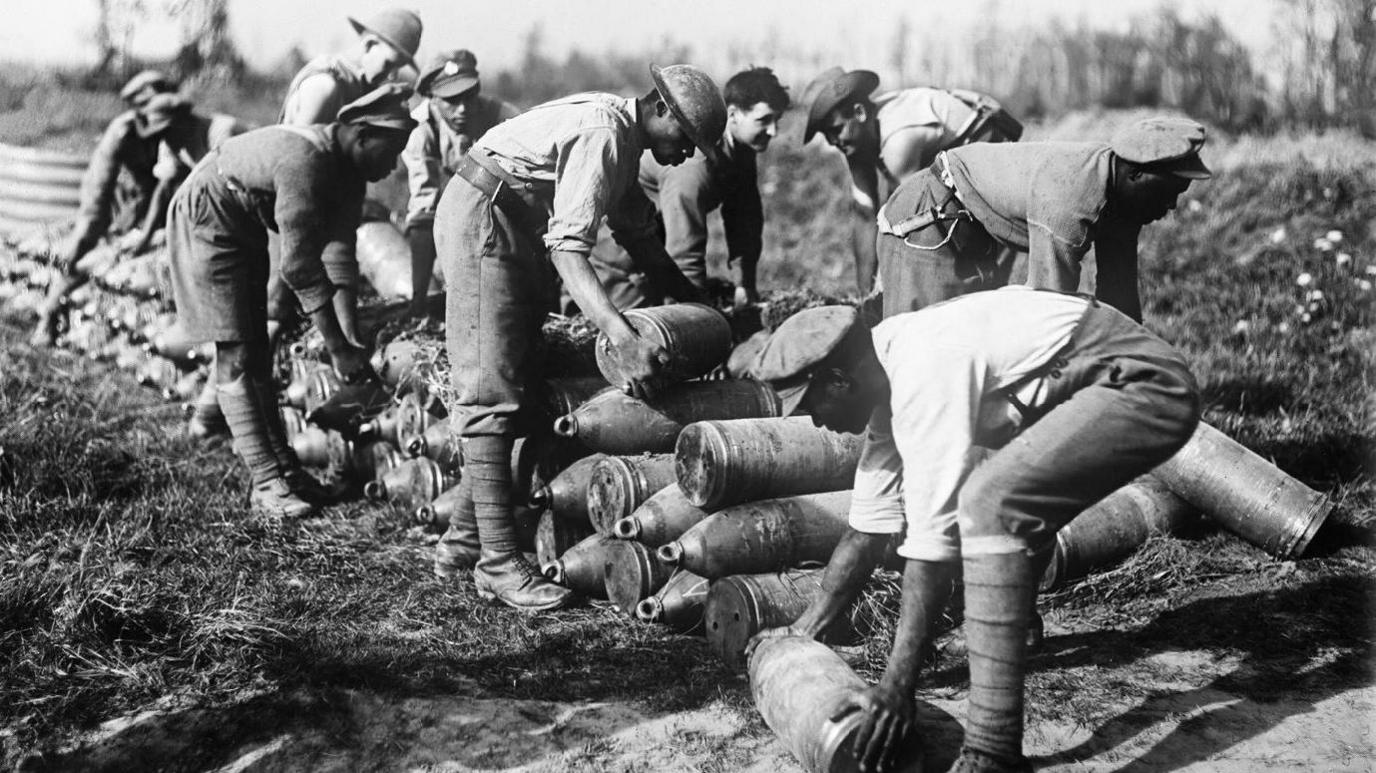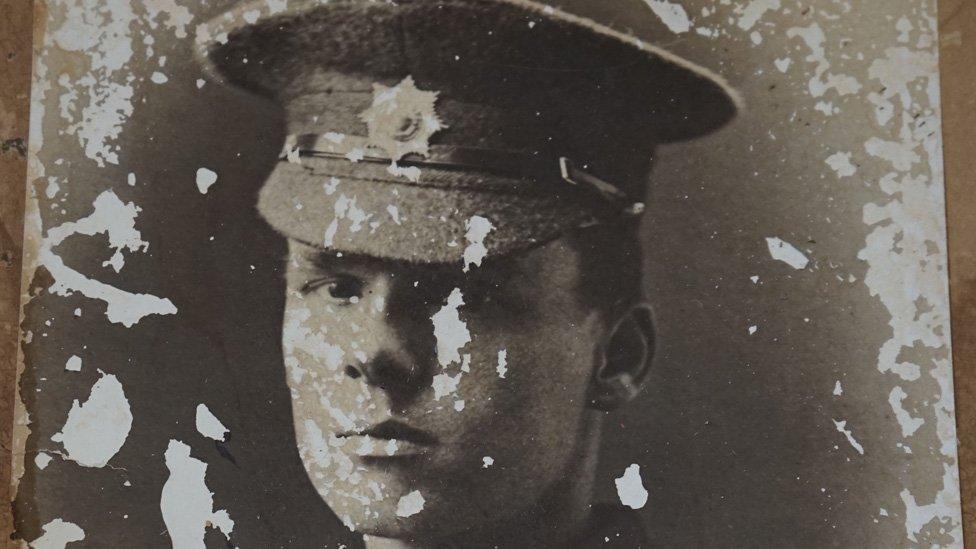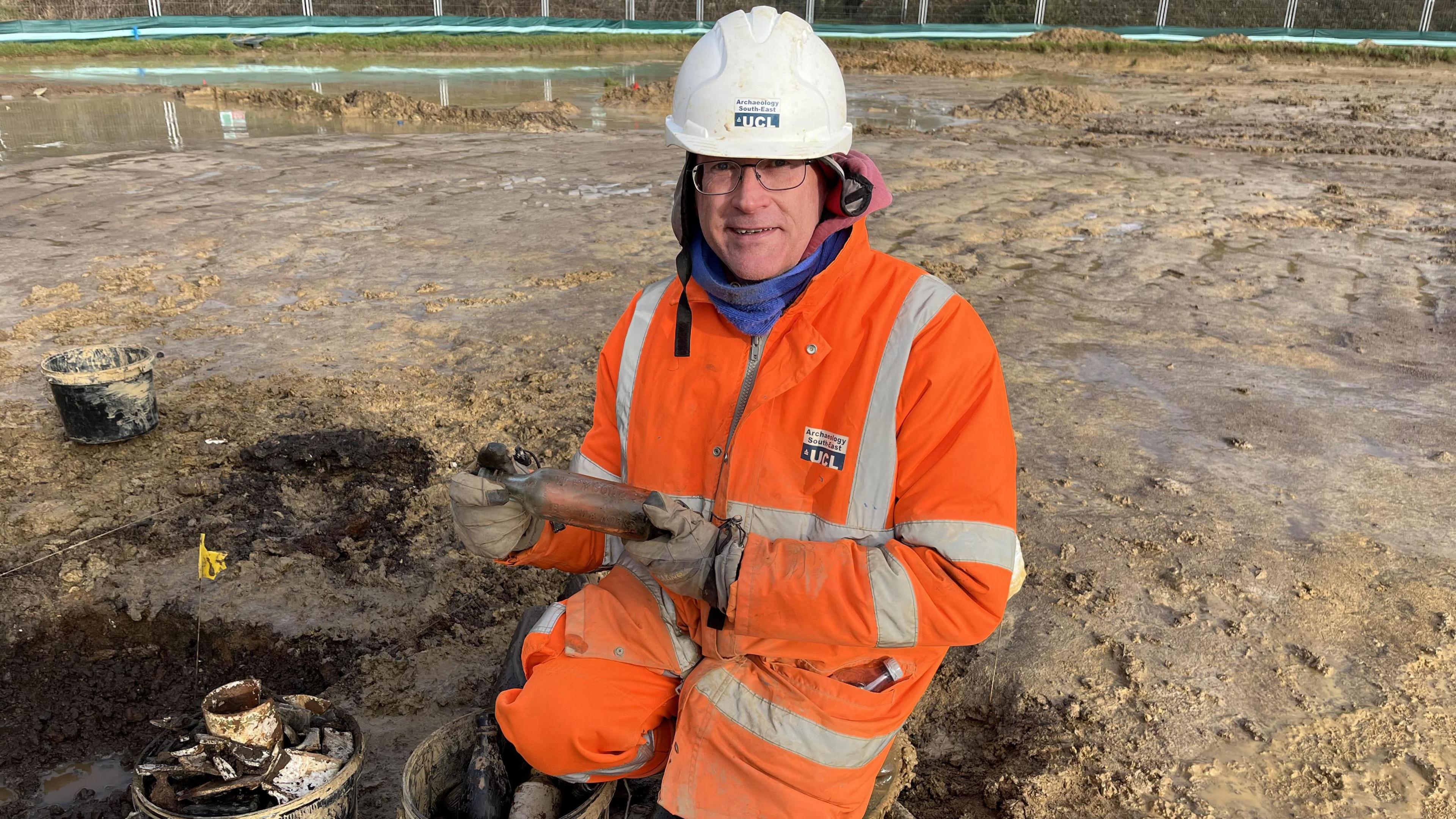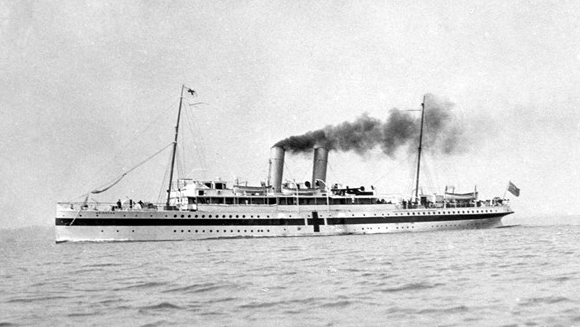The soldiers who were not allowed to fight

The British West Indies Regiment was later disbanded
- Published
In 1915, recruits from across the Caribbean arrived in East Sussex to train as part of the British West Indies Regiment (BWIR) - but they were not allowed to fight in Europe.
Seaford Camp became their home and they were relegated to non-combat roles.
Local historian Kevin Gordon said soldiers got involved in the community in Seaford, with some teaching at a local school, and they received a warm welcome.
Historian Richard Smith, from Goldsmiths, University of London, said there was an argument that if black soldiers outperformed white soldiers on the Western Front, and defeated a white enemy, this would instil confidence in the men to the extent that they would question British imperial rule.
As manpower dwindled, they were later allowed to fight in places including Palestine and Jordan.
Mr Smith added: "By the middle years of the war it was clear that the BWIR was being discriminated against.
"They were not allowed the same pay increases that other troops received.
"It wasn't until they protested that they received their full remuneration and their full allowances."
Seaford’s soldiers who weren’t allowed to fight
By the end of World War One, more than 15,000 men had served in the BWIR.
Of those, 697 were wounded, 185 died in action, and 1,071 died of illness - 19 of which were buried at Seaford Cemetery.
The regiment earned 81 medals and was mentioned 49 times in dispatches.
There is a memorial plaque in Seaford Cemetery, which was unveiled in 2015, marking the centenary of the disbanded regiment's formation.
In 2018, a second plaque was installed at Seaford Railway Station, where many soldiers would have first arrived.
Secret Sussex
Explore more fascinating stories from Sussex
Listen and subscribe for the latest episode of Secret Sussex
Follow BBC Sussex on Facebook, external, on X, external, and on Instagram, external. Send your story ideas to southeasttoday@bbc.co.uk, external or WhatsApp us on 08081 002250.
Related topics
- Published7 November 2018

- Published15 January

- Published27 July 2024

Related internet links
- Attribution